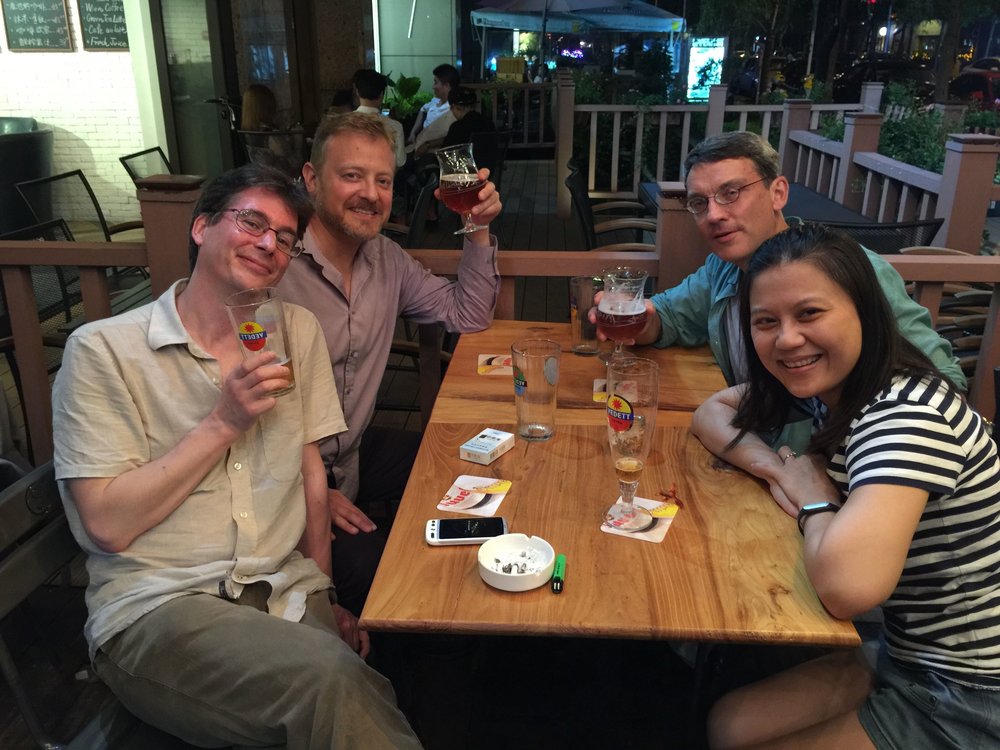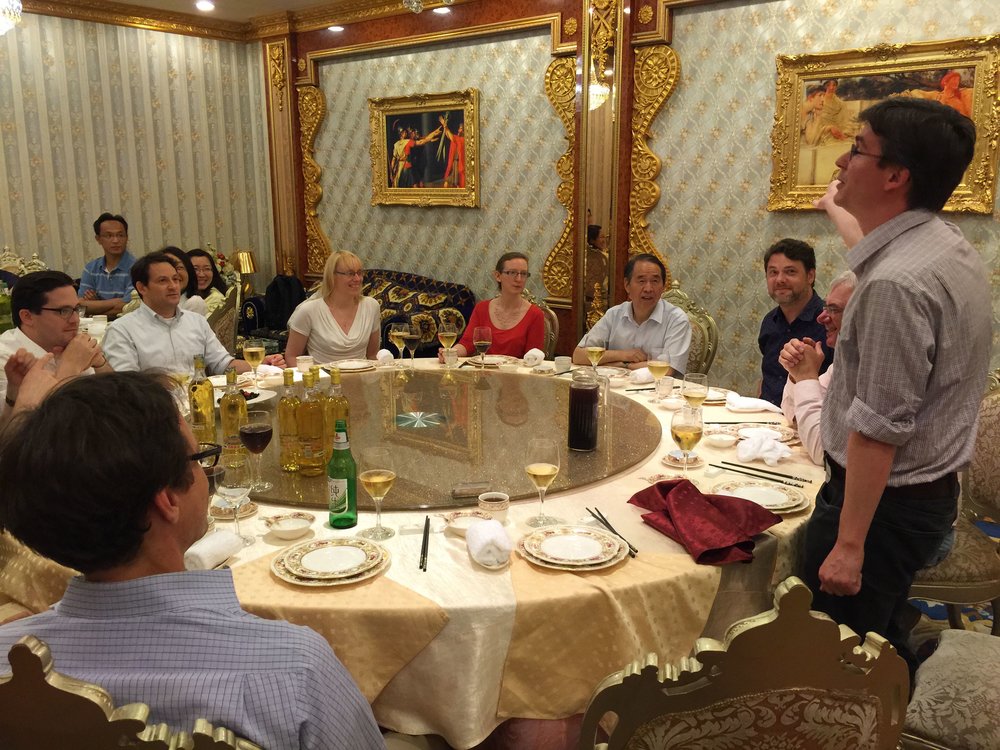
The rainy weather of Shanghai in recent weeks has brought a pall to the city, but fortunately the arrival of a number of old friends and colleagues from the USA, UK and elsewhere for the summer workshop and conference season has lifted my spirits greatly. Earlier this week, I met up with Toby Lincoln, a scholar and researcher of Chinese urban history and professor at University of Leicester the UK. We joined his fiance and another old friend and colleague of mine, John Crespi, professor of Chinese language and literature at Colgate University, for an evening of conversation and a sampling of fine Belgian draft beers at Cafe des Stagiares on Dagu Road.

On Friday, July 3, I joined Toby and Xu Tao, the two co-organizers of the Habitable Cities Workshop held at the SASS building in Shanghai. We were joined by a dozen or so colleagues in the field of modern Chinese history whose work focuses on some aspect of urban China in the 20th century. The purpose of the workshop was to present papers on their subjects and then align everyone on the project of an edited volume that Toby is putting together on The Habitable City. You can find the workshop outline and paper topics here.

Toby has just published his first book,Urbanizing China in War and Peace: The Case of Wuxi County, hence the smile. I look forward to reading it when I get a chance.
Now he's saddled himself with an even tougher project: herding wild cats. He has succeeded in getting a grant to pull together an edited volume, and I wish him the best of luck for this challenging yet ultimately rewarding job.
The papers individually were all very promising and showcased the original research of the participants. The cities covered in the workshop included Shanghai of course, but also Wuxi, Tianjin, Dalian, Lushun, and Kunming, thus encompassing a fairly good cross-section of modern Chinese cities.

Most focused on the Republican Era with a little overlap into the 1950s. Rob Cliver's paper on silk textile weavers and factory workers in Shanghai and Wuxi, part of his larger project on the silk industry of the Lower Yangzi region, focused mainly on the early years of Communist rule, turning some of our notions about CCP support for workers' rights on their head.
The focus of much of the discussion that went on in between the delivery of papers was how to better align the papers towards the common purpose and theme of the book: "habitability". As anybody who has put together an edited volume knows, that's the greatest challenge, and one of the questions we all pondered was what constitutes a habitable city?

During the conference I was able to briefly catch up with the legendary historian of Shanghai, Xiong Yuezhi, who gave a keynote speech at the conference. Dr. Xiong was very helpful when I first came to Shanghai in 1996 to research my dissertation on Shanghai's jazz-age cabaret industry. Over the decades he has published, edited, and otherwise produced an amazing body of work on the history of Shanghai.

Afterwards, we all headed to a nearby Chinese restaurant whose gaudy, super-fancy decor stunned us all. Toby held court as we continued our conversations and waited for the food to be laid on our tables. Then, the piece de resistance arrived...

After enjoying the fine meal, some of us took cabs out to the Fuxing Road/Yongfu Road intersection where we sampled the beers at Boxing Cat Brewery (most of us chose the IPA).

Following that, we walked over to the JZ Club to catch some Latino rhythms by an all-star cast of Shanghai horn players, and retired up to third floor to continue our conversations.
As mentioned earlier in this post, one of the topics that we discussed and debated throughout the day and into the night was what makes a city "habitable." If you accept my own definition of habitability as one that features top institutes of higher learning, gatherings of enlightened scholars, fine dining (cow's heads notwithstanding), excellent craft brews, hot live music, and frequent visits from old friends and colleagues, then Shanghai definitely qualifies.